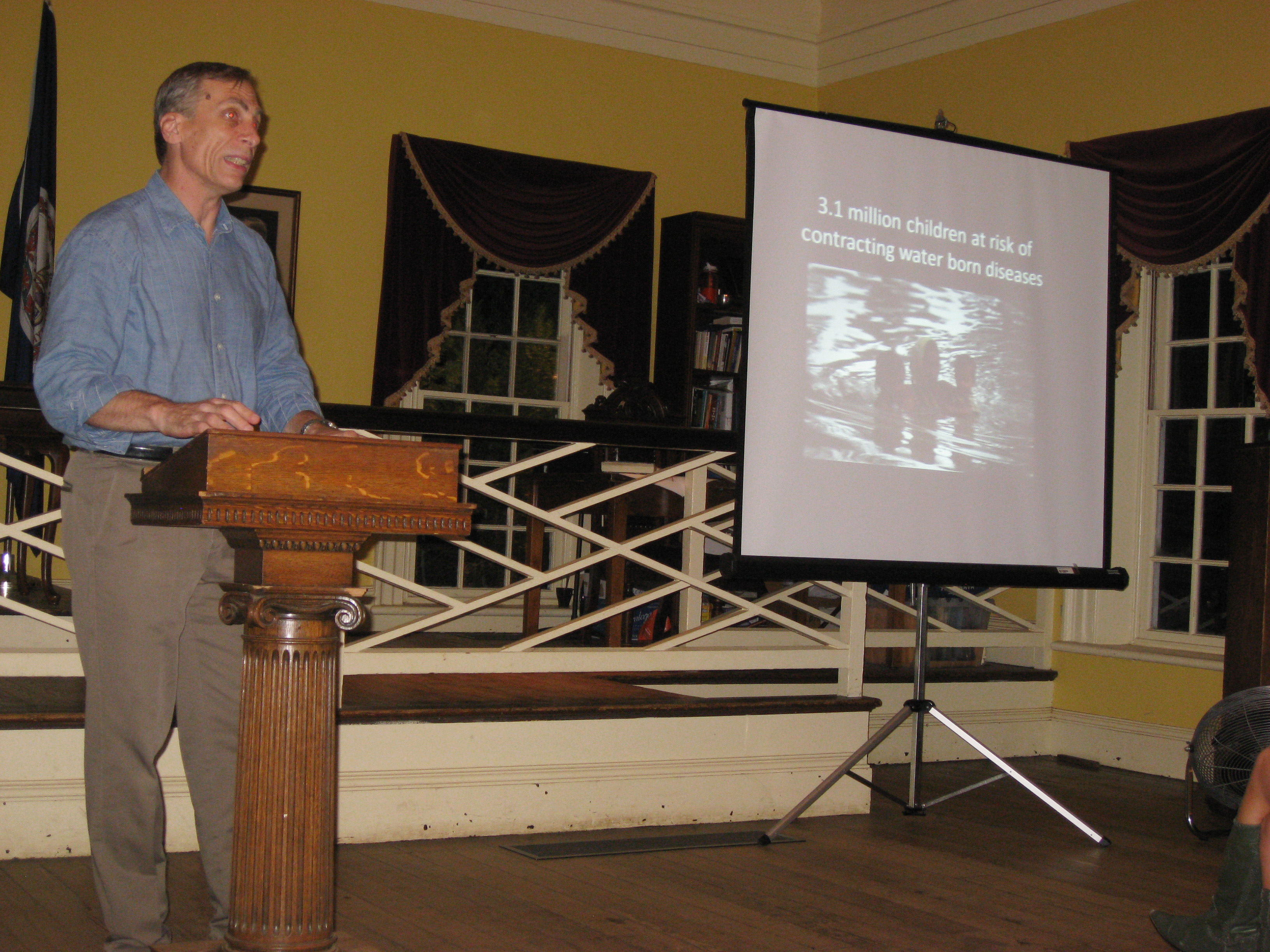September 8, 2010 — Though it was late on a Labor Day evening, Jefferson Hall on the University of Virginia's West Lawn was filled to capacity with students Monday seeking to learn more about the floods in Pakistan and what they can do to help.
The event, hosted by the Global Development Organization and 'Hoos for Pakistan Flood Relief, featured politics professor John Echeverri-Gent and Fauzia Kasuri, a spokesperson for the Imran Khan Foundation.
Echeverri-Gent started the evening by reporting on the somber reality of the disaster and its impact on the Pakistani people.
Some 20 million people have been displaced, he said, adding that the floodwaters have destroyed 7,000 schools and 5,000 roads.
The irony of floods, Echeverri-Gent said, is that though there is an excess of water on the ground, none of it is drinkable, and 3.1 million children are at risk of contracting waterborne diseases. So far, 70,000 cases of acute diarrhea have been reported, and many are at risk of developing cholera.
This situation is compounded by the fact that about one-fifth of Pakistan's health care facilities have been destroyed.
Still, Echeverri-Gent said that the worst is yet to come. The flooding is expected to continue into October – planting season – likely leading to food shortages in the coming year.
Additionally, 200,000 cattle have died, and the Pakistani minister of agriculture estimates that as much as 10 million more are in danger, he added.
The flood's "major consequences will actually be delayed," Echeverri-Gent explained. "The major repercussions have yet to be seen."
Moreover, many nations are hesitant to give money to the Pakistani government for relief because it is perceived as corrupt. Instead, the 8 million to 10 million people that the U.N. estimates require daily assistance must rely on non-governmental organizations for relief.
"Many people are reluctant to give money to a country that is in one way or another associated with terrorists," he said.
Unfortunately, the majority of the flooding has occurred in strategic areas of conflicts with the Taliban.
"The United States is the biggest contributor to relief funds," he noted, adding that the U.S. has donated $190 million to date.
"That response is dwarfed by the need," he said.
About $310 million has been donated through the United Nations, Echeverri-Gent said, though it estimates that $940 million worth of aid is needed.
"We shouldn't lose sight of the fact that there is extraordinary need here, and that need may grow over the next few months," he added. "This is a very important time for us to do what we can to help the 20 million people of Pakistan."
Kasuri took the stage next, speaking on the various opportunities for giving.
As a representative of the Imran Khan Foundation, Kasuri encouraged audience members to consider donating to the cause. She noted that the organization recently established the Imran Kahn Relief Fund specifically to assist in Pakistan.
"Right now, it is a quest of survival," she said, adding that the Pakistani people are in desperate need of basic supplies like food and clothing.
Students at U.Va. are getting involved in the relief efforts.
Saamia Noorali, a fourth-year global development studies major, founded 'Hoos for Pakistan Flood Relief a few days before the start of the fall semester.
"We're going to try to work with as many CIOs as possible to raise money and also generate awareness," she said.
So far, she has planned several events, including a benefit concert to be held on Sept. 30 and a bazaar to be held on the Lawn in October.
Along with the help of the Entrepreneurship Group at the McIntire School, 'Hoos for Pakistan will sell the popular rubber-band bracelets in the shape of the letters "PK," Noorali said.
In December, she hopes to donate the funds the clubs raised to several different relief funds.
"It's wonderful to see how well the U.Va. community comes together in times of crisis, despite what part of the world it is in," she said.
Media Contact
Article Information
September 8, 2010
/content/uva-panel-discusses-plight-pakistan

